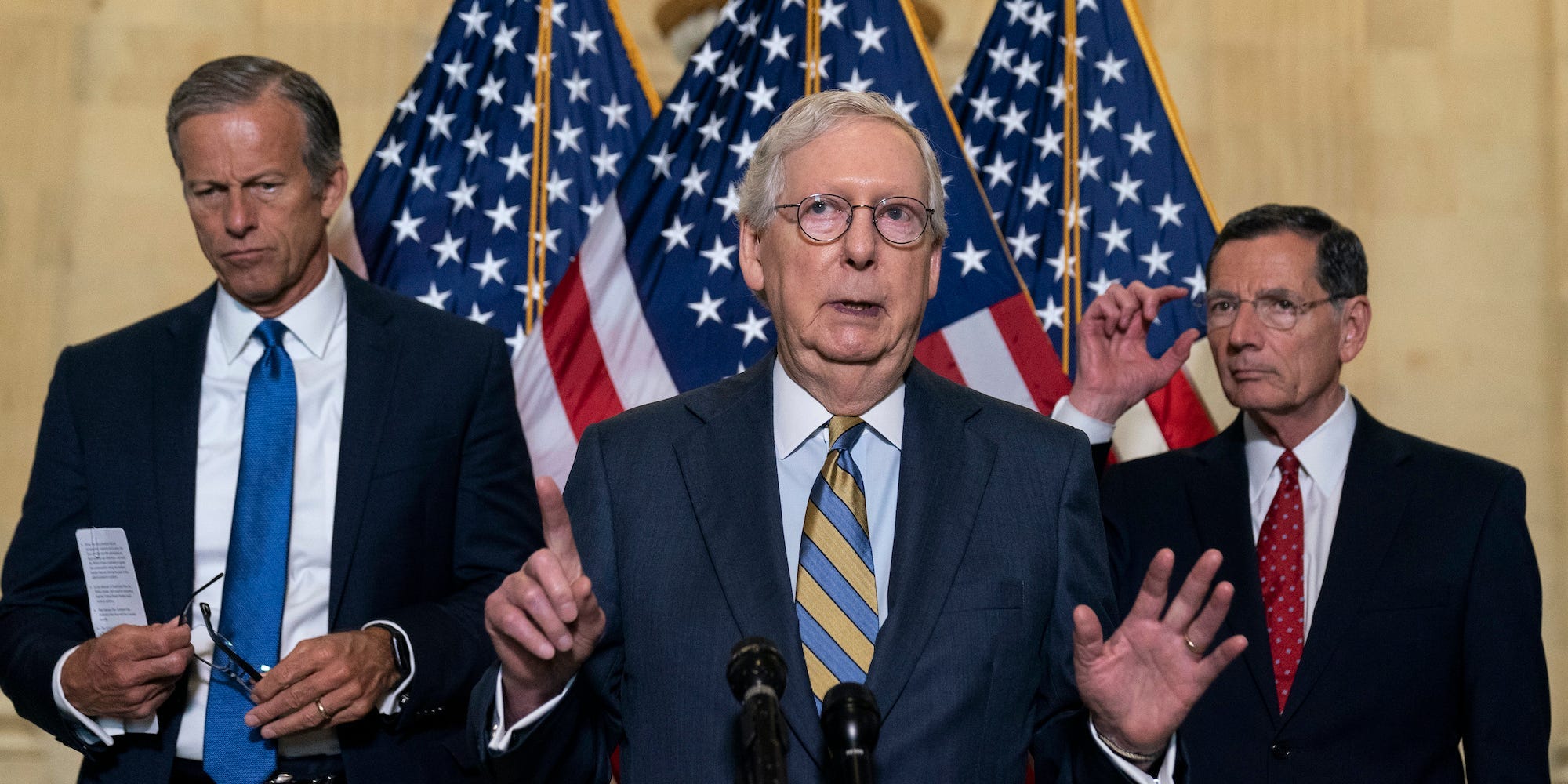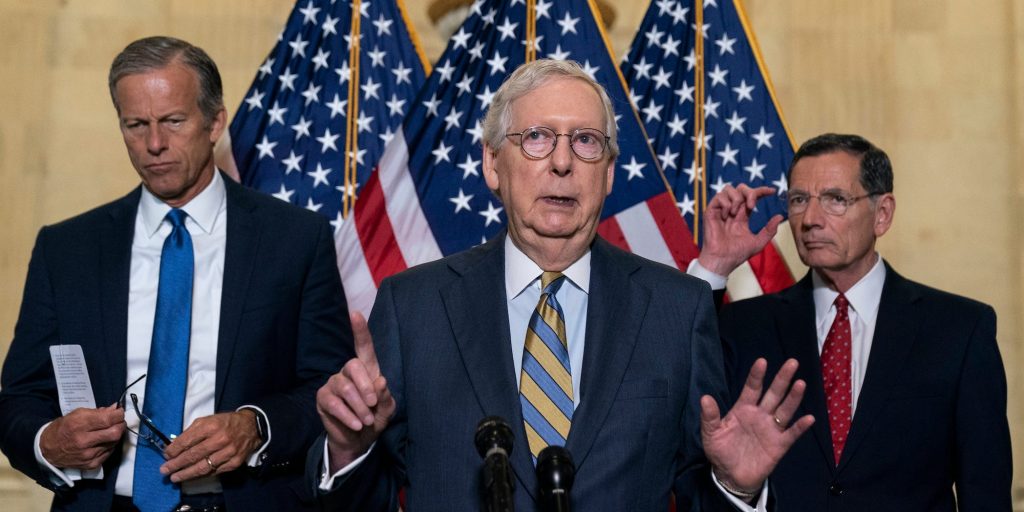
Alex Brandon/AP
- McConnell officially came out against restoring a key part of the Voting Rights Act.
- The bipartisan proposal from Sens. Manchin and Murkowski would have reestablished preclearance.
- McConnell's opposition dooms any chance of Congress taking action on voting rights this summer.
- See more stories on Insider's business page.
Senate Minority Leader Mitch McConnell threw cold water on a bipartisan proposal to revitalize the Voting Rights Act, dooming any hope of Congress taking action on voting rights this summer.
McConnell formally came out against the bipartisan proposal by Democratic Sen. Joe Manchin and Republican Sen. Lisa Murkowski to pass the John Lewis Voting Rights Act as an alternative to S. 1, the For The People Act, Democrats' wide-ranging voting rights and democracy reform package.
"There's no threat to the Voting Rights Act, it's against the law to discriminate in voting on the basis of race already, and so I think it's unnecessary," McConnell told reporters in his weekly news conference.
Earlier that day, Murkowski acknowledged to reporters that while the bill is more narrowly targeted than S. 1, getting the 10 Senate Republican votes required to break the filibuster is a challenge. Most legislation in the Senate requires a three-fifths majority vote to get past the filibuster and go to a vote, and no other Senate Republicans have expressed support for the measure.
"To get to 60, it's pretty difficult to count," Murkowski said, according to CNN.
The John Lewis Voting Rights Act, also known as HR 4., would restore a key provision of the bill that the Supreme Court struck down in the 2013 Shelby v. Holder ruling that determined which states and jurisdictions needed to seek approval, or preclearance, from the federal government before enacting new voting and election proposals. At the time of the Shelby decision, nine states and dozens of counties were covered and subject to preclearance.
Manchin has proposed subjecting all United States jurisdictions to preclearance, which would preempt the same arguments about the law treating states unequally that doomed the last preclearance formula. McConnell, however, cast that provision as a federal takeover of elections.
"What this rewrite of it does is grant to the Justice Department almost total ability to determine the voting systems of every state in America, which they're trying to do directly through [S. 1]" McConnell said.
Chief Justice John Roberts, who authored the majority opinion in Shelby, relied heavily on the argument that the previous preclearance formula was outdated and thus treated states unfairly.
While Manchin has framed the John Lewis Voting Rights Act as an alternative to S. 1, Democratic leaders in the House and Senate like House Speaker Nancy Pelosi say both bills are necessary. President Joe Biden called for a month of action on voting rights on Capitol Hill in response to GOP-controlled state legislatures passing laws restricting the voting process around the country.
The sprawling 800-plus page For The People Act, which passed the House in March, requires states to significantly expand voting and voter registration opportunities and includes wide-ranging reforms to federal campaign finance and ethics laws.
Despite the bill's poor chances of passing, Senate Majority Leader Chuck Schumer is still moving ahead with bringing the legislation to the Senate floor at the end of June, where it is certain to get filibustered by Republicans.
The Senate Rules Committee deadlocked 9-9 and failed to advance S. 1 out of committee after a marathon markup session on May 11, meaning Schumer will have to use other procedural methods to bring the bill to a vote.
The committee also failed to pass a manager's amendment to the legislation from Sen. Amy Klobuchar that tweaked provisions and made implementation deadlines in the bill more flexible in response to feedback from state and local election officials.
The legislation already faced long odds due to the Senate filibuster. But Manchin put the final nail in the coffin for the bill's chances in an op-ed in the Charleston Gazette-Mail published Saturday, when he publicly came out against the proposal on the basis that it has no Republican support. He reiterated his longstanding commitment to passing voting rights legislation on a bipartisan basis and to upholding the filibuster.
Another key moderate Democrat, Sen. Kyrsten Sinema of Arizona, is a co-sponsor of S. 1 but also steadfastly opposes getting rid of the current filibuster rules.


